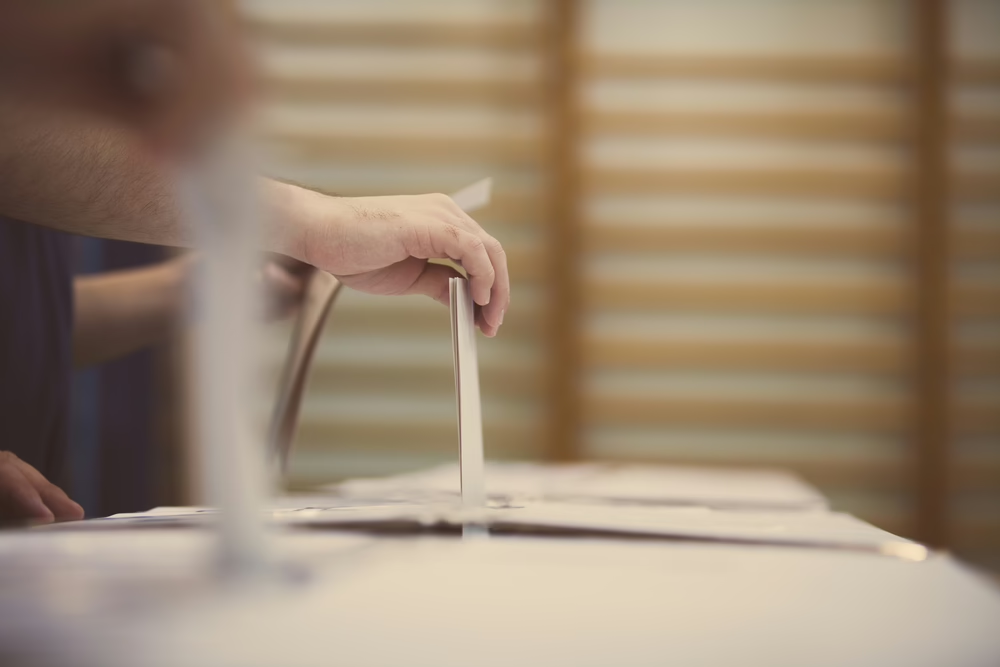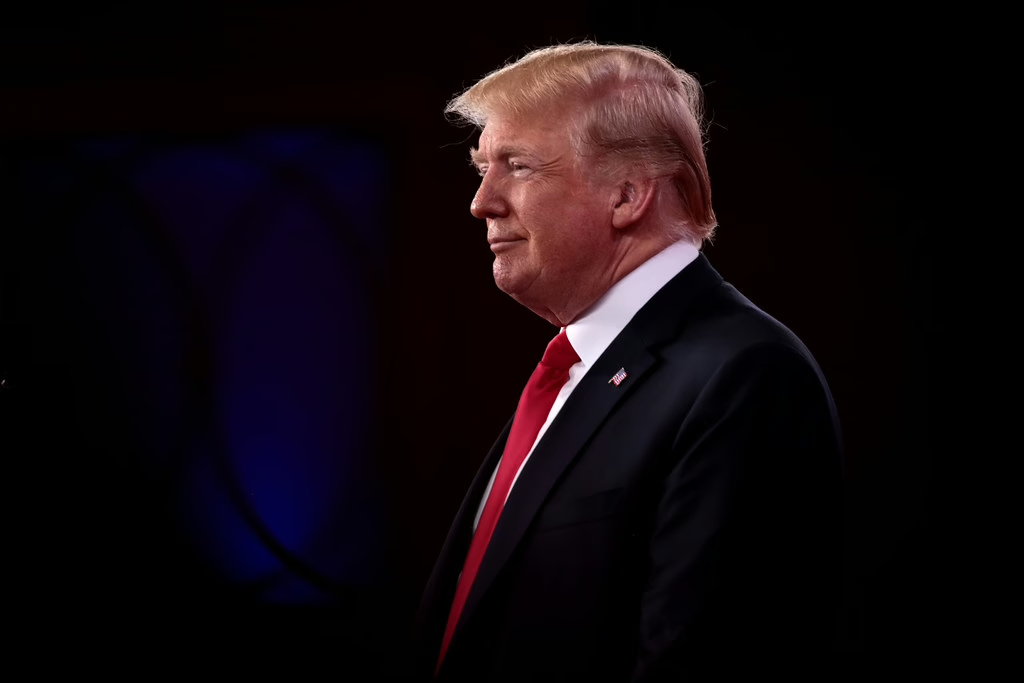Global Democracy on the Decline
Freedom House, a world leader in tracking and analyzing democracy around the world, has released a bleak report on the state of global democracy. This is the 14th consecutive year of global democratic decline according to Freedom House’s metrics. While authoritarian and illiberal regimes have always posed a threat to democratic ideals, the magnitude of the recent decline in democracies has been truly alarming.
India, the world’s largest democracy, is increasingly becoming a Hindu nationalist state as its Muslim population comes under attack both physically and legally. It has seen the largest score decline among the world’s 25 largest democracies. Israel—the only established democracy in the Middle East—has lost six points since 2009. Its Prime Minister has recently been indicted for bribery, fraud, and breach of trust. The United States—the world’s second largest democracy—fell by eight points in the last 10 years and is now trailing Italy, Latvia, Greece, and Slovakia, among others in the rankings.
- What is the cause of the decline in democracy around the world?
The answer is complicated. But a major contributing factor in many cases has been the reaction to globalization. As the world has become more interconnected, so has the economy. And many people in western democracies have seen their jobs disappear. Entire industries have been transformed by cheap labor in poorer industrializing nations, introducing systemic economic insecurity to the developed world. And coupled with these insecurities, there have been a series of immigration and refugee crises, from Central America to Syria. This influx of the “Other” into societies already searching for scapegoats has given populist demagogues ample opportunity to pit people against each other along economic, cultural, and racial lines. This has been made easier by the failure of elites and the establishment in many countries, from the United States and Great Britain to nations in Western and Central Europe, to manage the tumultuous impact of globalization. - Where’s the world leader in democracy?
Fighting its own battles from within, America has retreated significantly from the world stage, both economically and militarily. Although the crisis of global democracy predates the last few years, the US has, in the past, taken an active and leading role in NATO and the United Nations, organizations that help maintain world stability. But no longer. The United States has withdrawn from its active role in these global organizations and at times is outright hostile to them. This has certainly accelerated global democratic decline, as bad actors like Russia and China fill the void left by the United States. - What happens when America stops modeling democracy to the world?
Just as a nation’s leader can model behavior to their people, so the world’s superpower can model democracy (or even its opposite) to the nations of the world. As populism has swept the globe, we have seen significant minorities or sometimes even majorities question both the need for open societies and key principles that underpin constitutional democracy. Though it is difficult to ascribe causation, there seems to be a correlation between the United States’ retreat from international leadership and the decline of democracy around the world.

Chief Justice Roberts Rebukes Senator Schumer for Politicizing the Supreme Court
Senator Chuck Schumer attacked Supreme Court Justices Neil Gorsuch and Brett Kavanaugh during a rally over abortion rights and an ongoing Supreme Court case. Schumer remarked that the Justices “have released the whirlwind, and [they] will pay the price.” He also stated: “[They] will not know what hit [them] if [they] go forward with these awful decisions.” In response to Schumer, Chief Justice John Roberts commented that “Justices know that criticism comes with the territory, but threatening statements of this sort from the highest levels of government are not only inappropriate, they are dangerous.” Schumer later conceded that he used the wrong words but stood by his overall implication that there would be political consequences to President Trump and Senate Republicans, not personal threats to the Justices, if the courts struck down abortion rights.
- Why should we care if politicians have choice words for judges?
These were not simply choice words. Using this kind of language toward Supreme Court Justices is unacceptable but has unfortunately become part of a troubling pattern of politicians, including the President, attacking and condemning judges and juries for not following their political agendas. Last month, the President tweeted out an attack on the forewoman in the Roger Stone case. Overall, the President’s attacks on the federal judiciary for unfairness and bias have been sustained throughout and even prior to his presidency. In the summer before the 2016 election, the President levied an attack on District Judge Curiel, when Trump said “Let me just tell you, I’ve had horrible rulings, I’ve been treated very unfairly by this judge. Now, this judge is of Mexican heritage. I’m building a wall, OK?…” - Why is it important for the judiciary to be independent and impartial?
Chief Justice Roberts concluded his written response to Senator Schumer’s attack by saying, “All members of the court will continue to do their job, without fear or favor, from whatever quarter.” Indeed, an independent judiciary is crucial to maintaining a healthy democracy. The people must have faith that judges are independent and objective arbiters of the law, ruling based on justice, not on politics, on issues ranging from minor criminal charges to constitutional interpretation. When the judicial system is seen as above the fray of partisan bickering, its decisions are more easily viewed as coming from a place of impartial and shrewd judgement. That’s what makes the judiciary different from the other two branches, which are inherently political. When politicians threaten and chastise judges, they are attacking the independent foundation of the judiciary and turning public perception of judges from one of respect to one of distrust.And from the example of other countries, we have seen what can happen when people think the judiciary is fair game. For instance, Poland’s ruling Law and Justice party has had its affiliated media outlets and political operatives launch campaigns attacking the credibility of incumbent judges. This is part of an effort to diminish public trust in established judges as the Law and Justice Party seeks to replace them with its own handpicked judges.

Portland Embraces Ranked-choice Voting
Portland voters have recently approved a measure to expand ranked-choice voting to cover city council and school board races, after having used it for mayoral races since 2011.
In a time of deep dissatisfaction with the nature of elections in the US, ranked-choice voting is having a moment across the country. Ranked-choice voting is most popular at the municipal level, with cities like San Francisco, Oakland, Minneapolis, Santa Fe, and New York City all adopting the system. There is also interest in expanding ranked-choice voting to the state and federal level.
- What exactly is ranked choice voting?
Ranked-choice voting is a system where voters rank multiple candidates in order of preference on their ballots. There are different ways in which the rankings are assessed to pick a winner, but the overall intent is to make sure that a broadly liked candidate is picked.For example, in the instant run-off method, if a candidate is the first-choice of over 50 percent of voters, they would win, but if no candidate has a majority, the candidate with the lowest number of first-choice selections is eliminated and the votes are redirected towards the voters’ second-choice. This process can continue until one candidate has a majority. In recent presidential politics, adoption of ranked-choice voting could have incentivized people to pick less popular candidates whom they were more excited about instead of just voting strategically. Imagine you have a moderate who was a supporter of Amy Klobuchar. But they weren’t confident about her chances of clinching the democratic nomination. They could still have selected her as their first choice with Joe Biden as their second choice. Indeed, they would know that their vote would not be going to waste because even if Senator Klobuchar lost, their vote would then be counted for Biden. - What are the benefits of ranked-choice voting?
Advocates say that ranked-choice voting incentivizes candidates to stress what they have in common with each other, in an effort to become the second choice of voters who might prefer another candidate. This should increase the chances of electing more broadly liked candidates and help to cultivate a less polarized political environment. Ranked-choice voting promises to make the electoral process more efficient by avoiding run-off elections, and ensures that anybody elected to office actually has the support of a majority of voters. People will only have to go to the polls once and their votes will be counted even if their first choice candidate doesn’t win. Furthermore, strategic voting (AKA the way we vote now) can be demoralizing. Voters are forced to settle for the candidate they think has the best chance of winning instead of who they are most genuinely excited about, a quandary that can depress turnout in elections.To understand an important benefit of ranked-choice, imagine an election where the person with the most votes won even though they only received 25 percent of the vote. Although their supporters would be happy, the vast majority would be displeased. In a ranked-choice system, however, the 75 percent of people who voted for someone else could have also made second and third choices, which, combined, could have given a different candidate over 50 percent of the vote.

Education Department Reverses Decision after Bipartisan Backlash
For 17 years the Education Department has not enforced its eligibility requirements for the Rural and Low-Income School Program. But recently, the Trump administration considered enforcing them, a decision that would have left many rural schools with the prospect of serious budget cuts and little time to adjust. However, bipartisan backlash led the administration to back-off from the proposed change. 21 senators, 13 Republicans and 8 Democrats, signed a letter to Education Secretary Betsy DeVos encouraging her to reverse course. In a bipartisan effort, Congress banded together to defend education in underserved areas of the country.
This act of bipartisanship was particularly important given the struggles facing rural school districts. Rural schools have higher rates of child poverty than urban areas and struggle to recruit and retain teachers. This is exacerbated by low internet penetration in rural areas, which cuts children and staff off from the latest advancements in education. Federal budget cuts would make it even more difficult to overcome these challenges.
- What does this act of bipartisanship tell us about our democracy?
There is still hope. Bipartisanship has become rare and Congress is viewed by many in the public as dysfunctional. However, this example of bipartisanship is heartening. It is encouraging that in an era marked by drastic levels of polarization where the opposing parties increasingly view each other as a “threat to the nation’s well-being” there is still space for common action. This is not only seen in the backlash to rural education cuts, but also in the recent 451-2 House vote and 96-1 Senate vote authorizing $8.3 billion in emergency funding to combat coronavirus.






